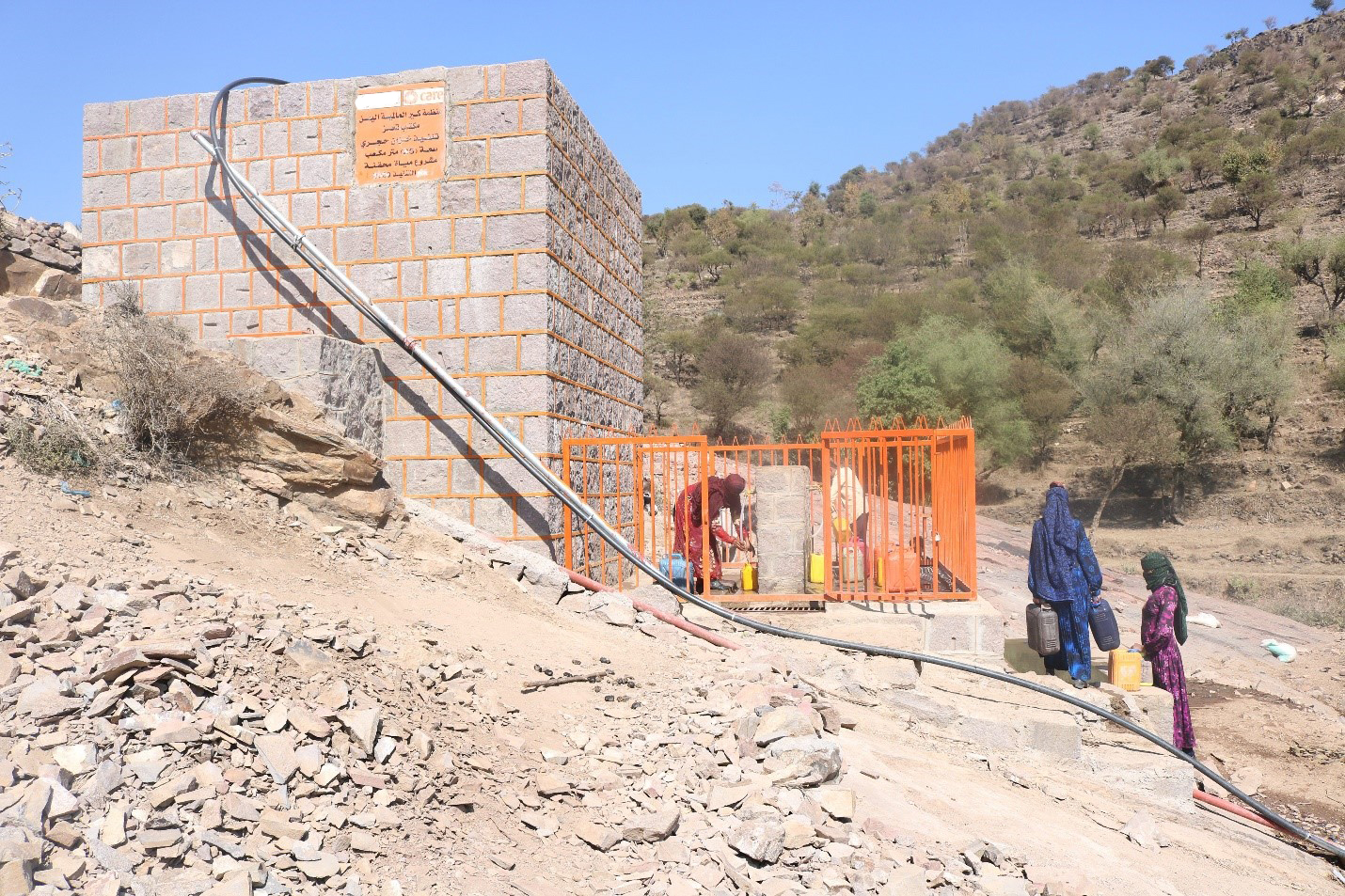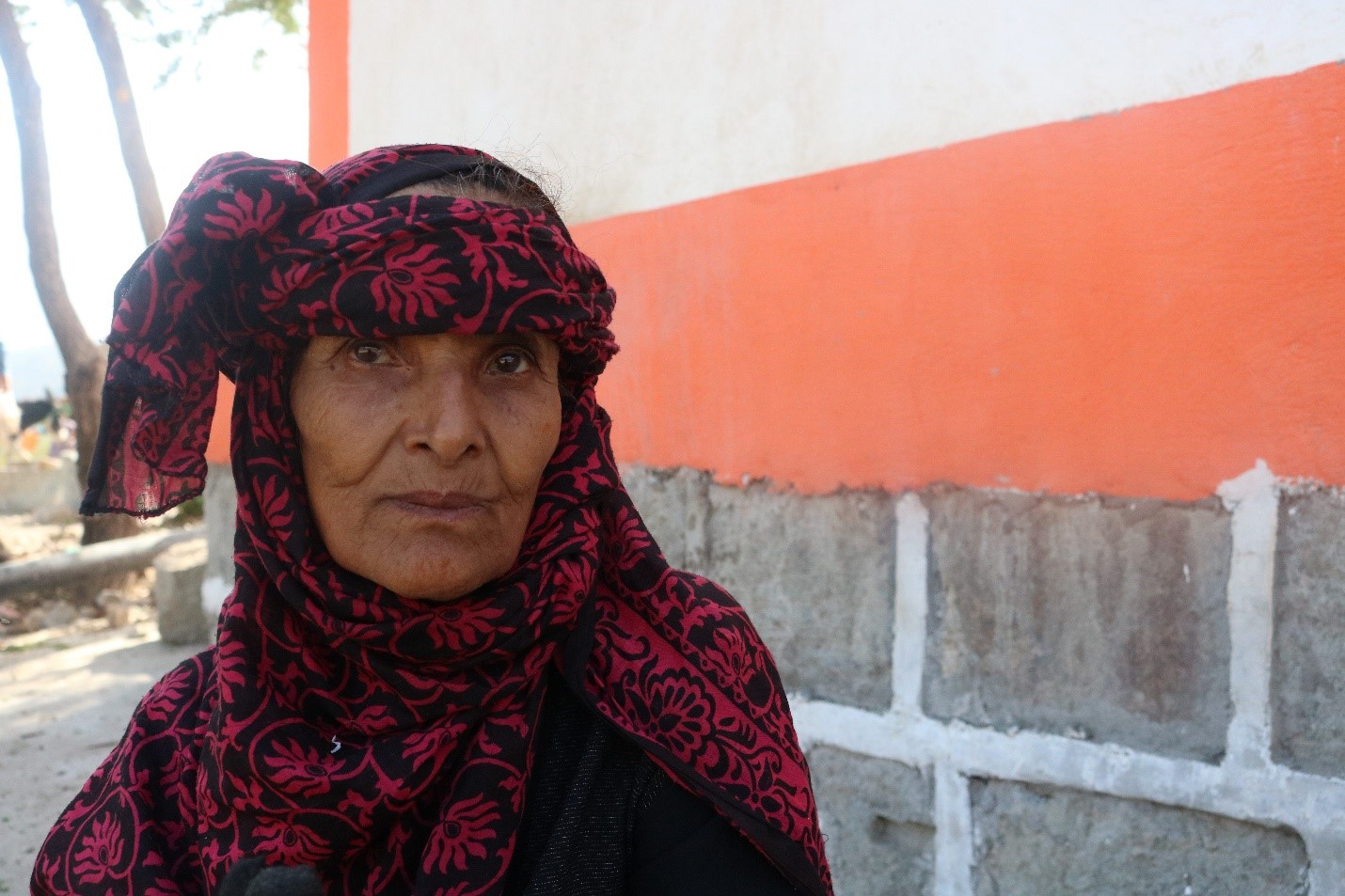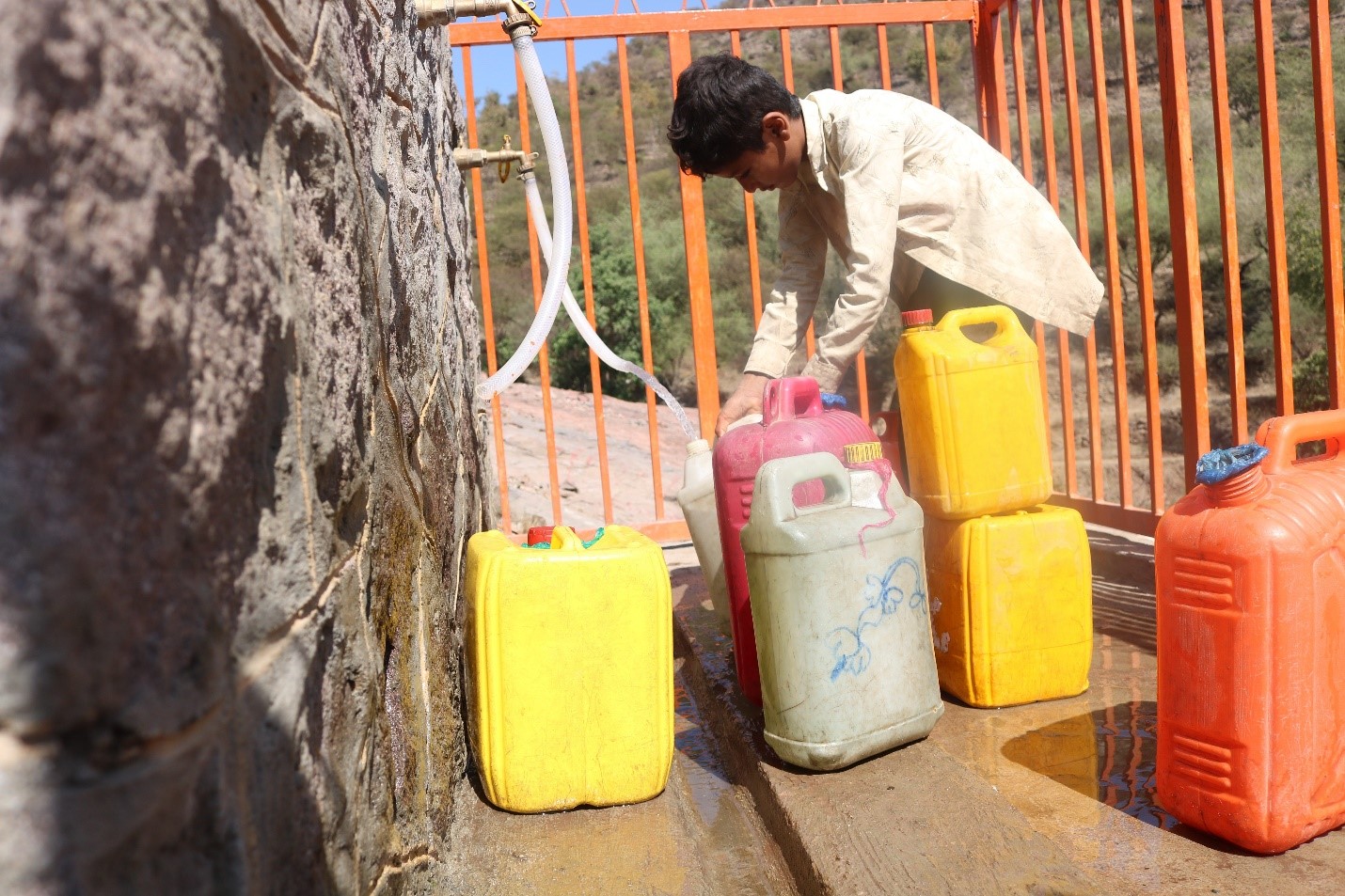Maternal mortality rates in Yemen are some of the highest in the region. Due to the lack of services, 1.2 million pregnant and lactating women suffer from either moderate or severe malnutrition. Moreover, women are often responsible for fetching water every day from the nearest water sources. Even pregnant women bring water from far places, carrying heavy cans for a long distance under the sun’s heat, which risks their babies’ and their own lives.
Salwa, a 35-year-old pregnant mother, lives with her three children in Jabal Habashi district of Taizz governorate. Salwa and her female neighbours used to carry ten-litre jerry cans and walk long distances daily. The fetching journey takes nearly four hours every day to collect enough water just for one day. The trek to find water wasn’t only long and exhausting, but women could also be subjected to other hazards such as abuse and wild animals. “Many women have lost their babies because of carrying heavy jerry cans and walking on the long road,” says Salwa.
Since 2015, Yemen has been devastated by the ongoing conflict, leaving millions of people without access to proper health care, clean water or sanitation, which is crucial for preventing disease outbreaks. Conditions in Yemen have put more Yemenis’ health at particular risk of a highly contagious diseases. Even before the COVID-19 pandemic, the country was already struggling to cope with diseases such as cholera, dengue fever and malaria.
“We used to consume unclean drinking water,” says Oloum, a 50-year-old displaced mother who lives in Jabal Habshi district. “This has caused kidney failure for many residents here.”



